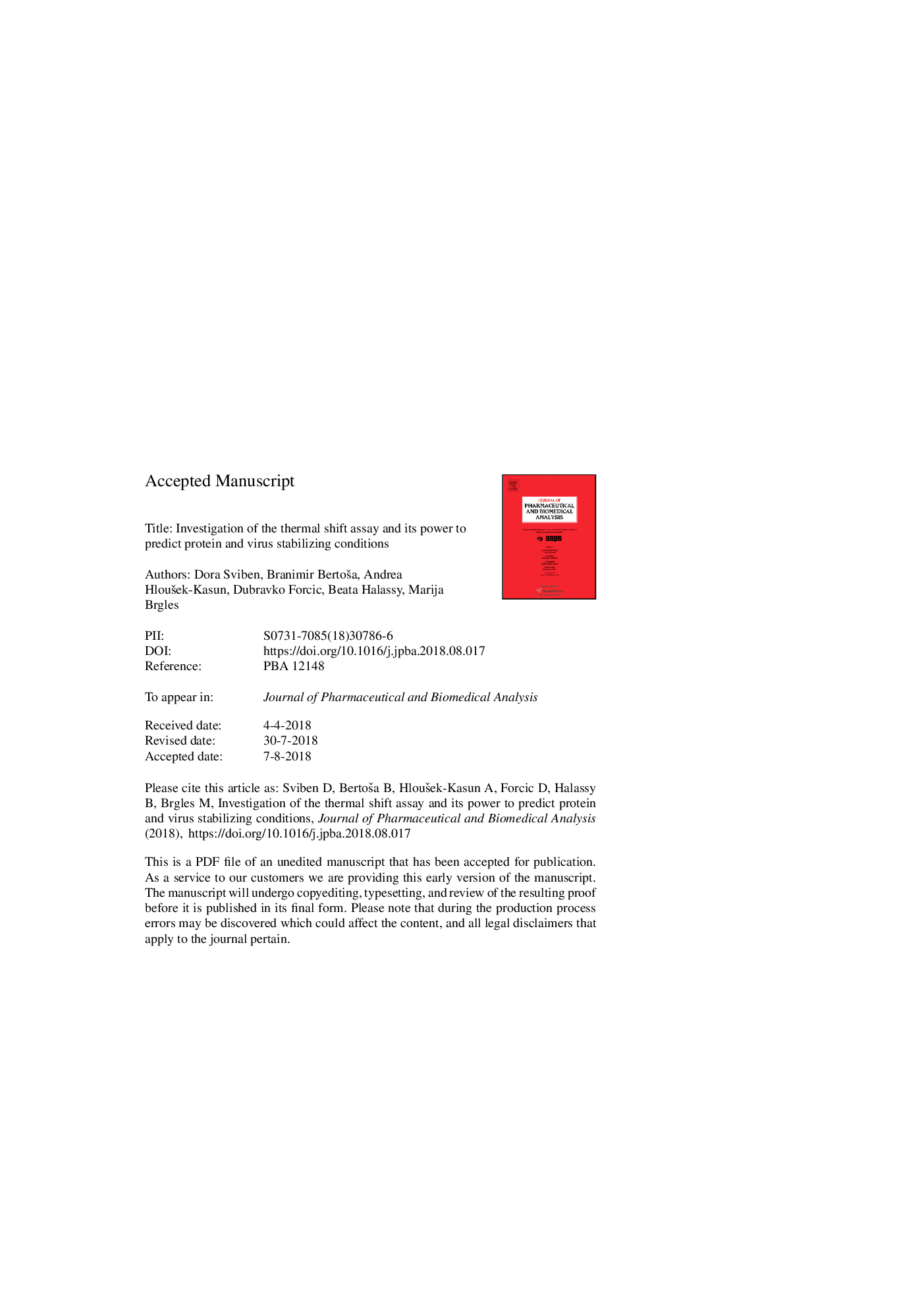| Article ID | Journal | Published Year | Pages | File Type |
|---|---|---|---|---|
| 8948175 | Journal of Pharmaceutical and Biomedical Analysis | 2018 | 35 Pages |
Abstract
Protein thermal shift assay (TSA) has been extensively used in investigation of protein stabilization (for protein biopharmaceutics stabilization, protein crystallization studies or screening of recombinant proteins) and drug discovery (screening of ligands or inhibitors). This work aimed to analyze thermal shift assay results in comparison to protein polymerization (multimerization and aggregation) propensity and test the most stabilizing formulations for their stabilization effect on enveloped viruses. Influence of protein concentration, buffer pH and molarity was tested on three proteins (immunoglobulin G, ovalbumin, and albumin) and results showed that each of these factors has an impact on determined shift in protein melting point Tm, and the impact was similar for all three proteins. In case of ovalbumin, molecular dynamics simulations were performed with the goal to understanding molecular basis of protein's thermal stability dependence on pH. Effect of three denaturing agents in a wide concentration range on Tm showed nicely that chemical denaturation occurs only at the highest concentrations. Results showed similar effect on Tm for most formulations on different proteins. Most successful formulations were tested for enveloped virus stabilizing potential using cell culture infectivity assay (CCID50) and results showed lack of correlation with TSA results. Only weak correlation of Tm shift and protein polymerization measured by SEC-HPLC was obtained, meaning that polymerization cannot be predicted from Tm shifts.
Related Topics
Physical Sciences and Engineering
Chemistry
Analytical Chemistry
Authors
Dora Sviben, Branimir Bertoša, Andrea Hloušek-Kasun, Dubravko Forcic, Beata Halassy, Marija Brgles,
